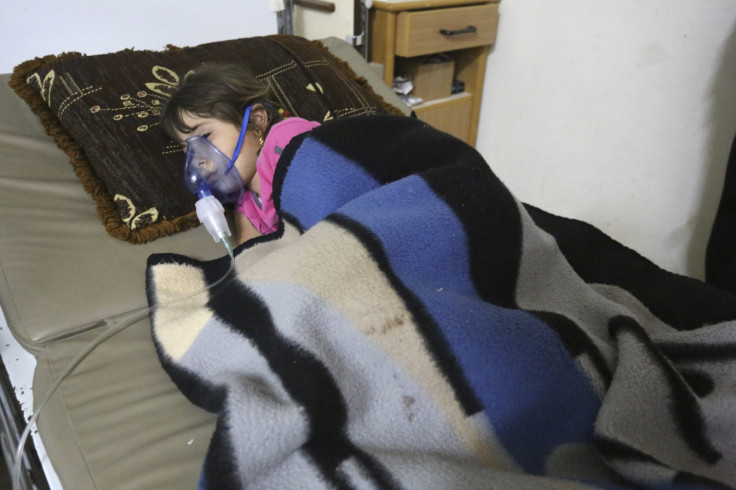Assad's Syrian government forces accused of third chlorine gas attack
A 13-month-long inquiry report by the UN and OPCW said military helicopters were used to drop barrel bombs in Idlib in 2015.
An inquiry report by the UN and global chemical weapons watchdog, the Organisation for the Prohibition of Chemical Weapons (OPCW) has found that the Syrian government forces carried out a toxic chemical gas attack in the war-torn country's Idlib province in March 2015. It is reported to be the third attack so far, according to the report that was released on late Friday (21 October).
The inquiry report, submitted to the UN Security Council, said it found "sufficient evidence" that Syrian President Bashar al-Assad's forces used military helicopters to drop barrel bombs from a high altitude, which released toxic chlorine gas, in Qmenas in Idlib province on 16 March 2015, Associated Press reported.
However, the report said it could not confirm the names of the individuals who had "command and control of the helicopter squadrons at that time". But it urged that those responsible should be "held accountable".
The Syrian government is yet to comment on the latest accusations.
The 13-month-long inquiry report was the fourth one submitted to the Security Council.
The third report released in August, too, found that Assad's government was responsible for using chlorine gas in two attacks – one each in 2014 and 2015 – and the Islamic State (Isis) militants for using sulphur mustard gas in one attack.
The deadly gas, if inhaled, can lead to the death of the victim by burning lungs and drowning them in the resulting body fluids.
The inquiry focused on nine attacks in seven areas in the war-ravaged Middle Eastern country. However, the team could not conclude the use of chemical in five cases due to lack of evidences, Reuters reported.
The latest finding is reported to set the stage for a showdown in the Security Council between Russia and the west over how to respond to the inquiry.
Syria had promised to adhere to a deal brokered by Washington and Moscow in 2013, which is to surrender all lethal toxins and nerve agents since they are banned under the 1997 Chemical Weapons Convention. The US and the western powers were thought to have raised concerns over Assad breaching the deal and the UN investigation is reported to be confirming those doubts.
The UK, France and US had been urging the Security Council to impose sanctions on the Assad government for using the lethal chemical weapons. Russia, which is supporting Syrian forces, claim the evidences were not conclusive enough to sanction and said it would oppose such a move by the UN.
The council members are expected to discuss the latest findings on 27 October.

© Copyright IBTimes 2025. All rights reserved.





















